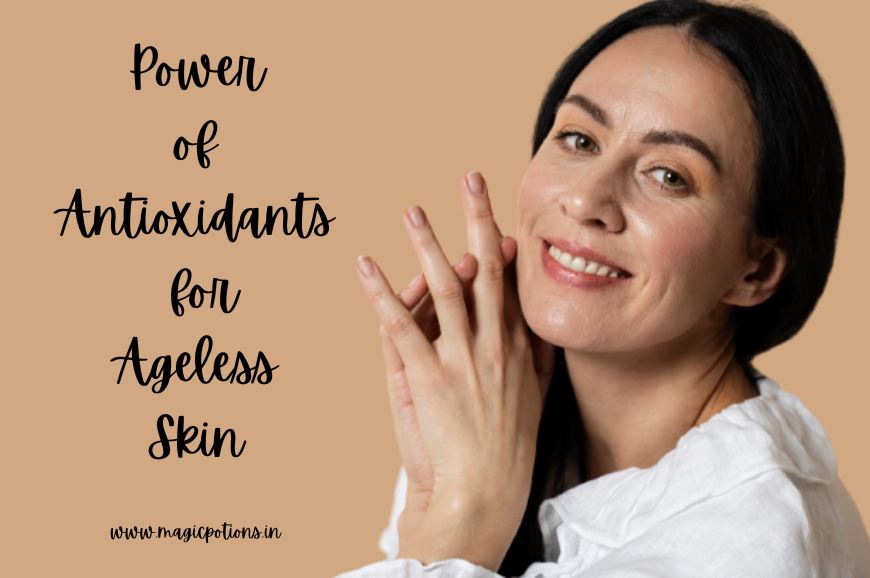
By AdityaDummy
Jun 15, 2023
Harnessing the Power of Antioxidants for Ageless Skin
The search for the fountain of youth may be centuries old, but our understanding of how to maintain youthful skin has never been more advanced. Central to this knowledge is the role of antioxidants, the unsung heroes of cellular health. These naturally occurring compounds can significantly slow down the aging process, reducing wrinkles, brightening complexion, and promoting overall skin health.
The Role of Free Radicals in Skin Aging
To understand the impact of antioxidants, we must first delve into the world of free radicals. These unstable atoms or molecules are the primary culprits behind aging and numerous health issues. Environmental factors like sun exposure, pollution, and stress trigger free radical formation in our skin cells, leading to oxidative stress. This process damages cellular structures such as DNA, proteins, and cell membranes, contributing to premature aging signs like wrinkles, fine lines, and hyperpigmentation.
The Power of Antioxidants
Antioxidants are our best defense against free radicals. They neutralize these damaging molecules, preventing them from harming healthy cells and structures. By doing so, antioxidants halt the aging process at the cellular level, preserving the skin's youthful appearance. Notably, different antioxidants offer distinct benefits, from boosting collagen production to preventing hyperpigmentation, enhancing the skin's texture, and even protecting against skin cancer.
Topical Antioxidants and Your Skincare Routine
While a diet rich in antioxidant-heavy fruits and vegetables can significantly benefit your skin, incorporating topical antioxidants into your skincare routine offers more direct, potent effects. Commonly used antioxidants in skincare include Vitamins C and E, retinol (Vitamin A), niacinamide (Vitamin B3), and plant extracts like green tea and resveratrol.
Vitamin C, for instance, is renowned for its brightening effect and its ability to stimulate collagen production, while Vitamin E is a powerful moisturizer that protects against sun damage. Retinol, on the other hand, promotes skin cell turnover, reducing fine lines and wrinkles. Niacinamide helps improve skin elasticity and reduces discoloration, while plant-based antioxidants like green tea and resveratrol combat inflammation and oxidative damage.
Each of these antioxidants can be incorporated into your skincare routine via a variety of products, including cleansers, toners, serums, and moisturizers. However, remember to introduce new products slowly and monitor your skin's reaction to avoid potential irritations or allergic responses.
Conclusion
The power of antioxidants in preserving and restoring skin health cannot be overstated. These compounds offer a scientifically backed, effective means of reducing the signs of aging and promoting a vibrant, youthful complexion. Whether through dietary changes, topical skincare products, or a combination of both, incorporating antioxidants into your daily routine can significantly contribute to achieving ageless skin.
However, maintaining healthy skin is a multifaceted process that extends beyond antioxidant use. Proper hydration, sun protection, regular exercise, adequate sleep, and reducing stress are equally crucial for skin health. It's the combination of these practices, alongside a diet and skincare routine rich in antioxidants, that truly harnesses the power of antioxidants for ageless skin.
In the end, always remember to consult with a dermatologist or a skincare professional before starting any new skincare regimen or making significant changes to your diet. Your skin is unique, and understanding its specific needs is key to unlocking its youthful potential.